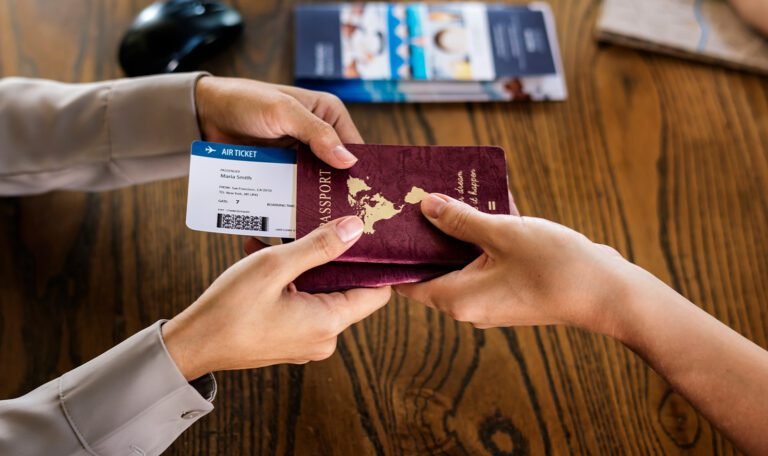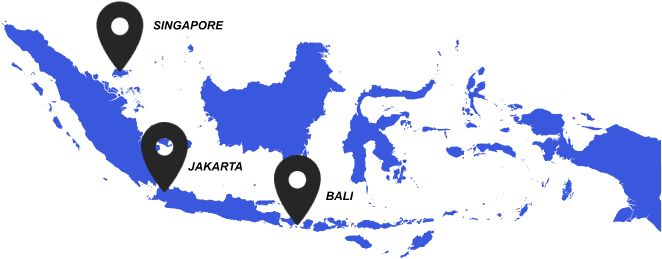Table of Contents
ToggleWhether you are investing in Bali or living in Bali, it is important to define how your income will be taxed in Indonesia and in your home country. Indonesia has signed several tax treaties with several countries to avoid double taxation and facilitate tax treatment.
The tax residency might sometimes be defined depending on the country, and where the income will be taxed can be interpreted differently depending on several factors. It is important to consult a tax consultant in your home country to confirm how the taxation will be applied.
In a general way, tax offices around the world consider the taxpayer to be a tax resident if the person spends more than 180 days in the country or if the person has economic activity or interests in the country. This last definition can be subjected to interpretation and used by the tax office to redefine the base of taxation.
Tax Residency in Indonesia

As written in a previous article, the Indonesian authorities qualify a person as a taxpayer if the following criteria are matched:
- Resides in Indonesia;
- Presents in Indonesia for 183 days or more in any twelve-month period or
- Presents and intends to reside in Indonesia (this option is more rarely applied)
The taxpayer needs to apply for a tax number called NPWP and get its EFIN number (Electronic Filing Identification Number).
Indonesia applies the principle of worldwide income. In other words, Indonesia requires the taxpayer to declare, once a year (between January and March), the assets and liabilities and worldwide income.
The US applies the same principle by deducting the amount paid overseas from the total amount.
Example: If John has 500 USD income from Indonesia and this income is taxed at 10% in Indonesia but was supposed to be taxed at 30% in the US, the US administration will apply a tax of 20% (30-10).
Also read: Taxation in Indonesia: How Businesses And Individuals Can Save And Comply
Never worry about taxes and accounting again
Dealing with finances, taxes, and accounting can feel overwhelming, especially as a foreigner in Indonesia. Let us guide you through processes like tax calculation, payroll, personal or corporate tax, short-term investments, balance sheet analysis and much more.
With ILA by your side, nothing can go wrong. Schedule a free consultation today or learn more about our tax and accounting services.
Double Tax Avoidance Agreement in Indonesia
Purpose
Indonesia has signed more than 71 tax treaties with several countries around the world. The purpose of those agreements is to avoid double taxation on the income earned by the taxpayers working or trading with Indonesia. So, these treatments apply to dividends, royalties, interests, and withholding tax, making cross-border taxation more manageable.
Having this DTAA (Double Tax Avoidance Agreement) facilitates business and relations between countries and encourages investments on both sides.
How it applies
The taxpayer needs to provide a Certificate of Domicile (KITAS – SKTT) or any other proof of residence to demonstrate the applicability of the DTAA.
Obviously, the income has to be proven to respect the rules and anti-abuse regulations with full ownership of the assets.
Countries with a DTAA
| Algeria
(Aljazair) |
Denmark
(Denmark) |
Jordan
(Yordania) |
Norway
(Norwegia) |
Seychelles
(Seychelles) |
Taipei
(Taiwan) |
| Australia
(Australia) |
Egypt
(Mesir) |
North Korea
(Korea Utara) |
Pakistan
(Pakistan) |
Singapore
(Singapura) |
Thailand
(Thailand) |
| Austria
(Austria) |
Finland
(Finlandia) |
South Korea
(Korea Selatan) |
Papua New Guinea
(Papua Nugini) |
Slovakia
(Slovakia) |
Tunisia
(Tunisia) |
| Bangladesh
(Bangladesh) |
France
(Perancis) |
Kuwait
(Kuwait) |
Philippines
(Philipina) |
South Africa
(Afrika Selatan) |
Turkey
(Turki) |
| Belgium
(Belgia) |
Germany
(Jerman) |
Luxembourg
(Luxembourg) |
Poland
(Polandia) |
Spain
(Spanyol) |
United Arab Emirates
(Uni Emirat Arab) |
| Brunei Darussalam
(Brunei Darussalam) |
Hong Kong
(Hong Kong) |
Malaysia
(Malaysia) |
Portuguese
(Portugal) |
Sri Lanka
(Sri Lanka) |
Ukraine
(Ukraina) |
| Bulgaria
(Bulgaria) |
Hungary
(Hungaria) |
Morocco
(Maroko) |
Qatar
(Qatar) |
Sudan
(Sudan) |
United Kingdom
(Inggris) |
| Canada
(Kanada) |
India
(India) |
Mexico
(Meksiko) |
Romania
(Romania) |
Suriname
(Suriname) |
United States of America
(Amerika) |
| China
(China) |
Iran
(Iran) |
Mongolia
(Mongolia) |
Rusia
(Rusia) |
Sweden
(Swedia) |
Uzbekistan
(Uzbekistan) |
| Croatia
(Kroasia) |
Italy
(Italia) |
Netherlands
(Belanda) |
Saudi Arabia
(Saudi Arabia) |
Switzerland
(Swiss) |
Venezuela
(Venezuela) |
| Czech Republic
(Republik Ceko) |
Japan
(Jepang) |
New Zealand
(Selandia Baru) |
Serbia
(Serbia) |
Syria
(Suriah) |
Vietnam
(Vietnam) |
Each DTAA has a specific rate with each country depending on the source of income (dividend, interests, royalties).
We recommend consulting us or your tax consultant before making any assumptions about the tax treaty or rate. The DTAA and how it applies can change the profitability of your business and investment decisions.
Maximizing Benefits for Business and Tax Residents
Strategic tax and incentive management is key for business owners and tax residents regarding financial maximization. Also, by taking depreciation, looking at tax credits, and repaying for growth, the tax burden can be lowered while cash inflow improves. It is equally important to know the international income tax provisions to mitigate double taxation of income earned overseas where one is an earner. To prevent unnecessary tax penalties and new avenues for savings, it is useful to follow updates to tax legislation and communicate with specialists. By being forward-looking, you can increase profits and facilitate the growth of the business in the long-term perspective.
FAQ: Double Tax Avoidance Indonesia
1. What is a Double Tax Avoidance Agreement (DTAA)?
A DTAA is a treaty signed between two countries to avoid double taxation on the same income. These agreements apply to various types of income, such as dividends, royalties, interests, and withholding tax, making cross-border taxation more manageable.
2. How do tax treaties benefit international taxpayers?
Tax treaties prevent double taxation, ensuring that taxpayers do not pay tax on the same income in both Indonesia and their home country. This encourages investments and economic activities between treaty-signing countries.
3. What documents are needed to apply for DTAA benefits?
To apply for DTAA benefits, you need to provide a Certificate of Domicile (KITAS – SKTT) or other proof of residence. Your income must comply with anti-abuse regulations and demonstrate full ownership of the assets.























